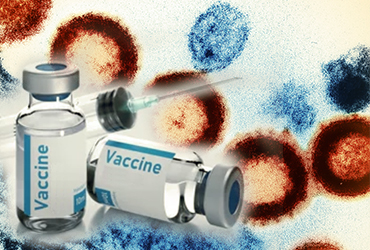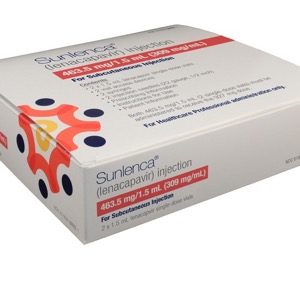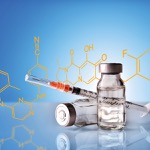By Landon Gray
The phase 3 Mosaico HIV vaccine clinical trial was discontinued because evidence of efficacy was lacking, according to a statement released by Janssen and its global partners.
Although the vaccination regimen was not effective in preventing HIV infection compared with placebo, according to the study’s independent data and safety monitoring board (DSMB), no safety issues were identified (ClinicalTrials.gov Identifier: NCT03964415).

In 2019, researchers enrolled roughly 3,900 cisgender men and transgender people who have sex with cisgender men and/or transgender people from HIV-vulnerable populations in more than 51 trial sites in Argentina, Brazil, Italy, Mexico, Peru, Poland, Puerto Rico, Spain and the United States.
The study participants received an investigational vaccine regimen that contained a mosaic-based adenovirus serotype 26 vector (Ad26.Mos4.HIV) during four visits over the course of one year. The researchers administered a mix of soluble proteins (Clade C/Mosaic gp140, adjuvanted with aluminum phosphate) during visits 3 and 4.
After analysis, the data available to date indicated to the Mosaico DSMB that the vaccine does not protect against HIV, thus failing to achieve the study’s primary end point, the company said.
“This is a disappointing outcome, but not a setback,” Stephaun E. Wallace, PhD, MS, the director of External Relations in the COVID-19 Prevention Network (CoVPN) and HIV Vaccine Trials Network at the Fred Hutchinson Cancer Center, in Seattle, told Infectious Disease Special Edition. “The findings from this study will help us understand more about how to combat this extremely formidable virus. Through innovative research methods, we are developing new and better approaches and making significant progress toward creating effective vaccines.”
Dr. Wallace said there are a few different HIV vaccine approaches being tested in early-phase studies, including a messenger RNA HIV vaccine candidate (ClinicalTrials.gov Identifier: NCT05217641).
“We learned from the [Antibody-Mediated Prevention] studies that broadly neutralizing antibodies [bnAbs] can be safely delivered and provided some protection against HIV. We are currently testing various combination bnAbs that are more potent than the ones previously tested,” he added.
In 2021, the Mosaico DSMB also determined the vaccine regimen evaluated in the phase 2b Imbokodo study did not sufficiently protect young women in sub-Saharan Africa from HIV.
In both trials, favorable safety profiles were reported.
The Mosaico study was a product of a global public–private partnership that included the National Institute of Allergy and Infectious Diseases, the HIV Vaccine Trials Network, the U.S. Army Medical Research and Development Command, and Janssen Vaccines and Prevention.
“We are disappointed with this outcome and stand in solidarity with the people and communities vulnerable to and affected by HIV,” said Penny Heaton, MD, the global therapeutic area head in Vaccines at Janssen Research and Development, in Raritan, N.J. “Though there have been significant advances in prevention since the beginning of the global epidemic, 1.5 million people acquired HIV in 2021 alone, underscoring the high unmet need for new options and why we have long worked to tackle this global health challenge.”
Although HIV pre-exposure prophylaxis (PrEP) and post-exposure prophylaxis remain effective key elements of the HIV prevention tool kit, one of the goals of HIV research is to create options to meet the needs and choices of individuals, according to Dr. Wallace.
“PrEP will be a choice for those persons for whom it works, and an HIV vaccine could be a choice for those persons for whom other options do not work,” he said.
“A safe and effective vaccine would have major global social and economic implications in the fight against HIV. A vaccine that was less than 80% effective could still avert millions of new HIV cases globally.”
Dr. Wallace reported no relevant financial disclosures.




